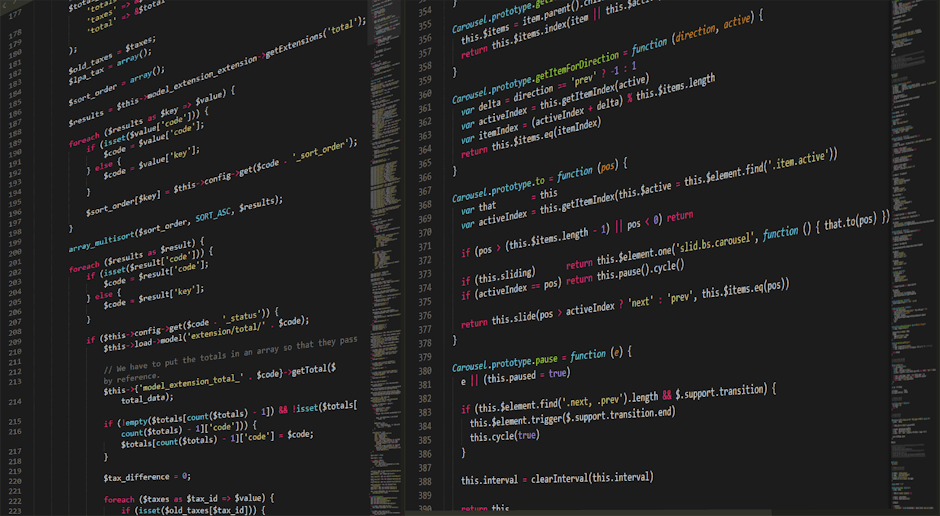
It’s 2025 now, and honestly, sometimes it feels like we’re all just acting out a part online. You scroll through the feeds, don’t you? And what you normally see is this parade of what looks like perfect lives, perfect moments, perfect people. It’s like everyone’s got their best foot forward, constantly, you know, and sometimes it really makes you wonder if anyone’s actually having a bad hair day or, like, burnt dinner last night. This whole idea of showing a fake version of yourself on social media, it’s not exactly new, but it’s really something we need to talk about more, especially now. Because, what does it truly do to us, to always present a picture that isn’t completely true, or maybe not true at all, about who we are when the screens are off and real life is just happening? It’s a bigger deal than people often think.
Why We All Kinda Do It: The Pressure to be Picture-Perfect
So, why does anyone even bother to put up this sort of, well, fake version of themselves anyway? A lot of it comes down to a feeling, a really strong feeling actually, of needing to measure up. You look at what everyone else is posting, usually, and it’s always the highlights, right? The fancy trips, the career wins, the seemingly perfect relationships, the really cute kids who never spill juice. It’s this constant stream of what seems like success, and it can make you feel a little less-than in comparison.
That pressure, it makes you want to show that your life is just as good, or maybe even better, than what other people are sharing. So, you find yourself picking the absolute best photo, even if it took fifty tries to get it. Or maybe you write a caption that makes a pretty regular event sound like the most exciting thing ever. It’s a bit of a performance, really, a show for the online crowd. And it is kind of addicting to get those likes or comments that say “Wow, your life is so great!” even if it’s based on a carefully constructed image.
Then there’s the whole idea of what we think others expect from us. You might feel like you have to post certain things to maintain a certain image, whether it’s for your friends, your family, or even for possible work connections. This idea of maintaining a “personal brand” on social media, it sometimes means you edit out all the messy, real parts of life because they might not fit the story you want to tell. It’s a lot of work, though, to keep up that kind of persona day in and day out.
And fear plays a big part too. The fear of not fitting in, or of being judged if you show the real, sometimes not-so-glamorous, bits of your existence. It’s easier, for some, to just go with the flow and pretend everything is just fine, all the time, rather than show any kind of vulnerability. This avoidance of possible criticism leads many people down this path of constant curation, building up a virtual self that lives apart from their everyday reality.
The Real Cost of Pretending: What Happens Inside Your Head
Okay, so we know why people do it, or at least why they normally start. But what happens on the inside when you’re constantly putting on this act? It’s not just a harmless thing, you know. There are some real downsides to always being this, well, “fake version” of yourself online. For one thing, it can make you feel pretty crummy about your actual self. Because if the best version of you is only online, then what does that say about the person who’s living life offline?
This disconnect, between who you are on your profile and who you are when you’re just, like, chilling at home, it can create a lot of mental strain. You might start to feel like you’re not good enough, because the real you just doesn’t measure up to the idealized person everyone sees on your feed. And that can really chip away at your self-belief, slowly but surely, over time. It’s hard to truly be happy with yourself if you feel like you constantly need to edit who you are for public viewing.
Anxiety is a common visitor, too, when you live this way. There’s this constant worry about being “found out,” about someone noticing that your online life isn’t exactly lining up with your real one. Or the stress of always needing to create new “perfect” content to keep up the image. It’s like carrying a heavy backpack all the time, full of all the little details you need to remember to keep the facade going. That kind of worry can really wear a person down after a while.
You also end up feeling pretty lonely, even if you have thousands of followers. Because if people are liking and commenting on a version of you that isn’t entirely real, then are they actually liking you? It makes it harder to form genuine connections because you’re not letting anyone see the true, vulnerable, sometimes messy you. And that’s a really sad thing, when you think about it. Feeling understood is a basic human need, and putting up a fake self can stop that from happening.
Spotting the Not-So-Real: A Bit of Online Sleuthing (and Self-Reflection)
So, how do you even tell if someone, or maybe even you yourself, is putting out a fake version? It’s not always super obvious, but there are some patterns, some clues, that normally pop up. When you see a profile that just seems too good to be true, where every single photo is professionally lit and every caption is always positive, even about tough stuff, that’s often a sign. Life just isn’t that consistently perfect for anyone, you know? There are always some bumps.
Look for a lack of realness in the interactions too. If someone only posts about their successes and never, ever talks about any struggles or challenges, it is quite telling. No one goes through life without some kind of problem, and pretending otherwise often means they’re filtering out a big part of their actual day-to-day existence. It suggests a curated existence, where only the glossy bits are allowed to appear for others to see.
Sometimes, it’s also the sheer volume of “perfect” stuff. Like, if every single meal is gourmet, every single outfit is designer, every single day is an adventure. That usually takes a lot of effort and, honestly, maybe some bending of the truth to make it look that way. Real life, for most of us, has a lot more sweatpants and microwave dinners than what you typically see on some feeds. It’s hard to keep up that level of aspirational living without a bit of fantasy.
And then, it’s about looking at your own behavior. Do you find yourself spending ages editing a photo until it barely looks like you? Do you filter out certain parts of your day because they’re not “Instagrammable”? Are you always comparing your behind-the-scenes to someone else’s highlight reel? Those are all pretty good signs that maybe you’re getting caught up in presenting a fake version. It’s a good idea to sort of check in with yourself, you know, every now and then, about what you’re putting out there.
Finding Your Way Back to Being Real (Because It’s Totally Possible)
The good news is, you can definitely dial back the pretense and start being more authentically you online. It takes a little effort, and maybe a bit of bravery, but it’s really something that pays off big time. One of the best places to start is by taking a break from it all. A social media detox, even just for a few days or a week, can really clear your head and help you remember what your life is like without the constant need to post or compare. It lets you reset things.
When you do come back, try being more mindful about what you share. Instead of thinking “What will get the most likes?”, maybe ask yourself “What feels real to me right now?” Share the good stuff, sure, but don’t be afraid to share the ordinary, or even the slightly imperfect, moments too. The burnt dinner story might actually get more genuine connections than the perfect restaurant meal photo, believe it or not. People connect over shared humanity, not flawless performance.
It’s also really important to curate your feed, meaning you should be careful about who you follow. If certain accounts consistently make you feel bad about your own life, it might be time to unfollow them or at least mute them for a while. Surround yourself, virtually speaking, with people who inspire you to be yourself, not someone else. Your online experience can be much more positive if you control what information you consume regularly.
And try to connect more in real life. Put down the phone, look people in the eye, and have actual conversations. Those real-world connections, they’re the stuff that truly helps you feel good and accepted for who you are, without any filters. It’s a way to remind yourself that your worth isn’t based on how many likes you get, or how perfect your online image is. You are considered to be perfectly fine just as you are, you know.
Ultimately, remember that authenticity is actually a superpower, not a weakness. Being real, even when it’s a little messy or not perfectly polished, allows people to truly see you and connect with you on a much deeper level. And in 2025, that kind of genuine connection, that’s what we really need more of, both online and off, it is.
FAQs About Being Your Real Self Online
Q1: Is it really that big a deal if I only show my best moments online? Doesn’t everyone do that?
A1: Well, yes, a lot of people do it, that’s true. But it can become a problem if you start to lose touch with your actual self or if it makes you feel bad internally. It’s all about balance, you know. If it’s causing you stress or making you feel like your real life isn’t good enough, then it probably is a pretty big deal for you personally, and maybe worth thinking about.
Q2: How can I start being more real online without feeling super exposed or vulnerable?
A2: You don’t have to post your deepest secrets right away! Start small. Maybe share a photo that isn’t perfectly posed, or a caption that shows a little bit of humor about an everyday struggle. It’s a gradual process. You can slowly share more of your true self as you feel more comfortable and confident doing so.
Q3: What if my friends only like my “perfect” posts? Does that mean they don’t like the real me?
A3: Not necessarily! Often, people just react to what they see. If you start showing more of your real self, the people who truly care about you will usually still be there and will hopefully appreciate that authenticity. And if some don’t, well, maybe those connections weren’t as genuine as you thought, which is also a type of learning experience.
Q4: I feel like I’m addicted to checking my phone and getting likes. How can I stop?
A4: That’s a common feeling, for sure. Try setting specific times to check social media, and stick to them. Turn off notifications. Put your phone away during meals or before bed. Even small breaks can help break that sort of cycle. Gradually, you can usually reduce how much you rely on it for validation.
Q5: Will showing my true self hurt my career chances if potential employers see it?
A5: This is a tricky one, and it really depends on your field. Generally, being authentic doesn’t mean being unprofessional. You can be real while still maintaining appropriate boundaries. Many companies these days actually value authenticity, as long as it’s coupled with good judgment. It’s a balancing act to make sure you’re presenting an accurate but also responsible image.








